Vision Condition
At What Age Can I Start Wearing Contact Lenses?
4 mins read
If you’re a teenager, or are a parent of one, contact lenses could change your confidence, vision and life. They could be the perfect answer to vision correction needs - or completely wrong for you..
Suitability for contact lenses depends on many factors, including the capabilities and character of the individual, not just the nature of their eyes.
Very young children may not be ready or able to apply and remove contact lenses themselves. Understandably, they may not want anyone but their parents to come anywhere near their eyes.
This sort of concern may explain why although one in three children and young adults need some form of vision correction, only about one in twelve of these are contact lens wearers . Those that do start wearing contact lenses tend to adopt them from about 13 years of age.
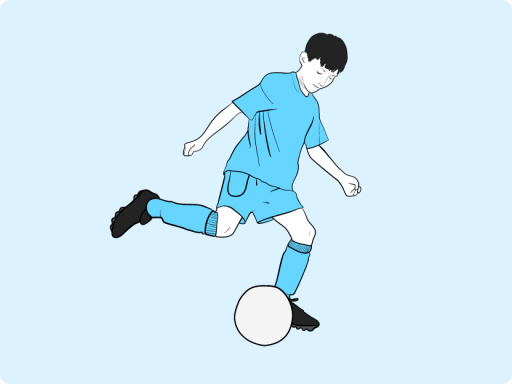
Interestingly, even younger kids tend to be absolutely fine wearing, handling and looking after contact lenses. Studies show them to be just as capable as their elders, in terms of care and maintenance. Children are fast learners - and they love the benefits that wearing contact lenses brings.
Childhood is a rough-and-tumble stage of life. As young people build confidence, not having to worry about their sight or wearing glasses can be a massive plus. Instead of losing or breaking their glasses, or not wearing them and struggling with poor vision, a child wearing contacts can take part normally in any sport or activity (other than swimming, enjoying a full field of vision rather than the limited peripheral vision given by glasses.
Social acceptance and self-esteem can also be significantly improved by the more natural look of contact lenses over spectacles. What’s more, contact lenses for teenagers open up whole new opportunities - from make-up to wearing coloured contact lenses and sunglasses.
Contacts are cool!
It depends. Talk to your eye doctor. If they and you agree that the young person in question is mature and capable enough to clean, care and handle contact lenses on their own, it’s a yes. Children and teenagers are just as entitled to experience the glories of contact lenses as anyone else - whether soft daily disposables, an affordable monthly lens, or rigid contact lenses.
Always drive home how important it is to follow best practice to ensure healthy contact lens wear. Most importantly, this revolves around keeping the contact lenses clean, wearing and replacing them as per instructions, and following all the maintenance rules. It’s a small price to be paid for all the benefits of contact lenses.
However, if a teenager with no need for vision correction just wants to buy a pair of coloured lenses online, for one-off cosmetic reasons, then the answer may be no, not yet, or not without advice and guidance first, from a qualified eye doctor. You’ll need a firm commitment from the teenager to wear the lenses responsibly. If you think all of the above applies, then daily disposables are probably the best options to look at.
Most older patients who require vision correction rely on glasses. Many assume that contacts are for the younger generations. Senior citizens are often surprised to learn that although their eyes have deteriorated with age, there are contact lenses for almost any condition they may have.
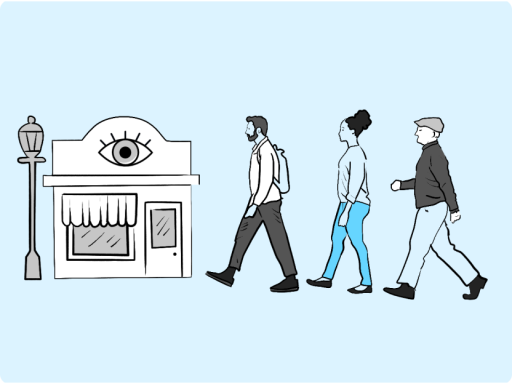
These conditions may be specific to them and present from birth or youth. Others could be age-related. For instance, after middle age the lenses inside our eyes lose their elasticity, in a common condition called presbyopia: bifocal and multifocal contact lenses can correct this. Dry eyes and a steady loss of visual acuity are also common with advancing age, as are increased light and eye sensitivity. Once again, these issues can all be addressed through contact lenses.
Of course, an older person may have difficulty with coordination. If their hands are unsteady, it can be hard to keep a contact lens still or balanced during application. Equally, there’s a risk of shaky hands leading to scratched eyes when removing a lens. When contact lenses are suggested for therapeutic use, finding someone to help apply them can make the difference between a wonderful option and a step too far.
However, having always kept fingers and the world away from their eyes, some older people may feel it’s too late to change a lifetime’s habits. As in all cases, it’s up to them, or those caring for them, to talk to the eye care professionals, to decide whether contact lenses are a good idea or not.
But let’s return to that opening question. Can you wear contact lenses at any age? Yes, absolutely!
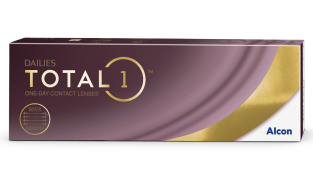

DAILIES TOTAL1TM
The first and only daily disposable lenses with nearly 100% water at the surface3, so nothing touches the eye but a gentle cushion of moisture.†4
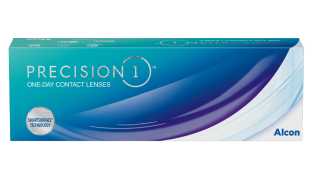

PRECISION1TM
Precise vision and dependable comfort5 in an easy-to-wear, easy-to-love daily disposable contact lens.
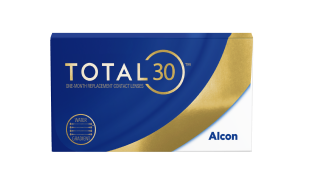

TOTAL30TM
The first and only monthly replacement Water Gradient contact lens that feels like nothing, even at day 30.‡6
REFERENCES
†Based on 90.4% of wearers agreeing with the statement, "while wearing my lenses, I sometimes forget I have them on".
‡Based on more than 70% of wearers agreed with the statements ‘These lenses were so comfortable I didn’t feel anything’ and ‘I did not have to think about my contact lenses today’, n=66.
1. Contact Lenses for Kids: What to Consider. Healthy Children.org. Website. https://www.healthychildren.org/English/health-issues/conditions/eyes/Pages/Children-Contact-Lenses.aspx. Updated July 31 2024. Accessed September 2025.
2. Presbyopia - Diagnosis & Treatment. Mayo Clinic Website. https://www.mayoclinic.org/diseases-conditions/presbyopia/diagnosis-treatment/drc-20363329. Updated November 20, 2021. Accessed September 2025.
3. Thekveli S, Qui Y, Kapoor Y, et al. Structure-property relationship with delefilcon A lenses. Contact Lens Anterior Eye. 2012; 35 [Suppl 1]:e14.
4. Perez-Gomez I, Giles T. European survey of contact lens wearers and eye care professionals on satisfaction with a new water gradient daily disposable contact lens. Clin Optom. 2014;6:17-23.
5. Perez-Gomez I, Valente R, Vonbun H. Survey of patient and ECP satisfaction with a new daily disposable toric contact lens. Optom Vis Sci; 2021;98:E-abstract 215040.
6. In a clinical study wherein patients (n=66) used AOSEPT® solution for nightly cleaning, disinfecting, and storing; Alcon data on file, 2021. Study CLY935-C013 p.4.
Data on file references available at AUS: 1800 224 153; Auckland NZ: 0800 101 106.
Consult your eye care professional for wear, care, precautions, warnings, contraindications and adverse effects.
ALWAYS READ THE LABEL AND FOLLOW THE DIRECTIONS FOR USE.
All content on this website is for informational purposes only, always talk to your health professional regarding your eye health or medical conditions.